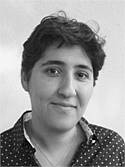Dr. Medyouf participates in the European Innovative Training Network INTERCEPT-MDS focusing on the shared training and research in Myeloid Diseases.
 Dr. Medyouf’s team will participate in the European Innovative Training Network (ITN) INTERCEPT-MDS, a Marie Skłodowska Curie Action, funded by the European Commission under H2020 framework programme, and coordinated by Dr. Marcus Buschbeck at the Josep Carreras Leukaemia Research Institute, in Barcelona (Spain). INTERCEPT-MDS intertwines 17 public and private centers from 7 countries to train 12 early-stage researchers (ESRs) at the PhD student level.
Dr. Medyouf’s team will participate in the European Innovative Training Network (ITN) INTERCEPT-MDS, a Marie Skłodowska Curie Action, funded by the European Commission under H2020 framework programme, and coordinated by Dr. Marcus Buschbeck at the Josep Carreras Leukaemia Research Institute, in Barcelona (Spain). INTERCEPT-MDS intertwines 17 public and private centers from 7 countries to train 12 early-stage researchers (ESRs) at the PhD student level.
The project that pivots this network aims to deepen on disease interception, a novel concept referring to the treatment of a disease before it fully develops by removing emerging altered cells. To make disease cell interception a reality, researchers need to overcome two key challenges: First, to identify few altered disease cells among many healthy ones. Second, to develop strategies that allow specific targeting of malignant cells without affecting healthy cells. In the INTERCEPT-MDS ITN, Dr. Hind Medyouf, an ERC investigator at GSH, and her colleagues propose to approach these challenges through shared research, multidisciplinary and multisectoral training of 12 ESRs. The project is aligned with the overall goals of the EU LifeTime Initiative of which the Josep Carreras Leukaemia Research Institute is an associated partner.
With the aim to train and present Europe’s first experts in the new field of disease cell interception, the ITN will take advantage of single-cell omics methods that have reached a level of maturity to be applied to a broad-scale. For interception, researchers will explore and exploit the epigenetic regulatory space by leveraging privileged access to tools, compounds and performing genetic screens in vivo and in vitro. This ITN will focus on myeloid diseases because they are a suitable paradigm for clonally evolving conditions with possible access to primary material (e.g. stem cells, niche cells etc.) through samples collected during clinical routine work up.
The Josep Carreras Leukaemia Research Institute will coordinate the network that includes as ESR-recruiting beneficiaries the Georg-Speyer-Haus and the Technical University of Munich (Germany), the University of Veterinary Medicine (Austria), the French National Institute of Health and Medical Research (France), the University of Florence (Italy), the Erasmus University Medical Center (Netherlands), the Universiy of Bergen (Norway) as well as the companies Biobam Bioinformatics (Spain) and the Munich Leukemia Laboratory (Germany). Additional partners contributing to the research and training programme are the Autonomous University of Barcelona (Spain), the management trainers from Leadership Sculptor GmbH (Germany), the biotech company Aelian Biotechnology (Austria), the patient support association Connaître et Combattre les Myélodysplasies (France), the University of Paris (France), the University of Florida (USA), the University Clinic Aachen (Germany) and the genomic service provider GenomeScan B.V. (Netherlands).
This project has received funding from the European Union’s Horizon 2020 research and innovation programme under the Marie Skłodowska-Curie grant agreement No 953407.
CP regarding ITN: Helena Diaz, communication@carrerasresearch.org, +34-629006054, Josep Carreras Leukaemia Research Institute, Ctra de Can Ruti, Camí de les Escoles s/n, 08916 Badalona (Barcelona).
Lead at GSH: Dr. Hind Medyouf, medyouf@gsh.uni-frankfurt.de, +4969-63395-540. 



